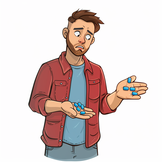Can low blood pressure cause erectile dysfunction?
- Low Blood Pressure and its Relation to Erectile Dysfunction (ED)
- Medical and Mental Health Conditions Causing ED
- Blood Pressure Medications Contributing to ED: Thiazide Diuretics, Loop Diuretics, and Beta-Blockers
- The Role of Low Testosterone in Arousal and Erection
- Blood Vessel Damage and Reduced Penile Blood Flow in Hypertensive Males
- The Impact of Hypertension (High Blood Pressure) on ED
- Recognizing ED as Abnormal: The Effect of Certain Medications
- Common Causes of ED: Anxiety, Stress, and Alcohol Consumption
- Seeking Advice from a Medical Professional for Persistent ED
- Side Effects of Blood Pressure Medication
- Can Too Low Blood Pressure Cause ED?
- Treatment for Erectile Dysfunction
- Will Viagra Work with Low Blood Pressure?

Low Blood Pressure and its Relation to Erectile Dysfunction (ED)
Low blood pressure, also known as hypotension, is not commonly seen as a direct cause of erectile dysfunction (ED). However, exceptionally low blood pressure can lead to inadequate blood flow to the penis, which is essential for achieving and maintaining an erection.
The ability to achieve an erection is heavily dependent on the cardiovascular system. Blood must flow into the penis, be retained there, and then flow out after ejaculation. Any interruption to this process, such as low blood pressure inhibiting the initial inflow of blood, can result in ED.
Medical and Mental Health Conditions Causing ED
A range of medical and mental health conditions can lead to ED. From the medical perspective, conditions like diabetes, heart disease, atherosclerosis, and even low testosterone levels can contribute to ED. Mental health conditions, including stress and anxiety, can also play a role.
Blood Pressure Medications Contributing to ED: Thiazide Diuretics, Loop Diuretics, and Beta-Blockers
Some medications used to control high blood pressure can also contribute to ED. Thiazide diuretics, loop diuretics, and beta-blockers are three such categories of medications. They work by reducing the force and speed of the heartbeat, which can result in less forceful blood flow to the penis, thereby causing ED.
The Role of Low Testosterone in Arousal and Erection
Testosterone plays a vital role in a man's sexual function. It's responsible for sex drive and has a significant role in initiating the process of erection. A decrease in testosterone levels can cause reduced sexual desire, which may lead to difficulties in achieving an erection. However, it is important to note that low testosterone alone is rarely the cause of ED, and it usually accompanies other medical conditions.
Blood Vessel Damage and Reduced Penile Blood Flow in Hypertensive Males
Hypertension, or high blood pressure, can damage blood vessels throughout the body. When these damages occur in the vessels supplying blood to the penis, it can reduce blood flow and lead to ED. This connection between high blood pressure and ED is quite common, as both are closely related to overall cardiovascular health.
The Impact of Hypertension (High Blood Pressure) on ED
Hypertension can affect erectile function in several ways. High blood pressure can damage arteries, making them less elastic, reducing blood flow to the penis. Additionally, some medications for managing hypertension can also cause ED.
Recognizing ED as Abnormal: The Effect of Certain Medications
While it's normal for men to have occasional difficulties maintaining an erection, persistent ED can be a sign of health issues. Certain medications, including some blood pressure medications and antidepressants, can contribute to ED. If ED persists, it is important to consult a healthcare professional.
Common Causes of ED: Anxiety, Stress, and Alcohol Consumption
Stress and anxiety are significant psychological factors that can cause ED. They can interfere with the brain's ability to send the necessary signals to trigger an erection. In addition, alcohol consumption can also lead to ED. While moderate alcohol consumption may not cause lasting problems, chronic heavy drinking can lead to long-term ED.
Seeking Advice from a Medical Professional for Persistent ED
For persistent or recurring ED, it is essential to seek advice from a medical professional. This can help identify any underlying health issues that may be causing the problem. Treatment options can vary depending on the root cause, from lifestyle changes to medication or therapy.
Side Effects of Blood Pressure Medication
As touched upon earlier, some blood pressure medications can cause ED. However, they can also cause other side effects like dizziness, fatigue, and changes in appetite or weight. It's important to discuss these side effects with your doctor to determine if the benefits of the medication outweigh the potential downsides.
Can Too Low Blood Pressure Cause ED?
In theory, if blood pressure is extremely low, it could cause ED by preventing enough blood flow to the penis to achieve an erection. However, this scenario is rare, and low blood pressure is not typically listed as a common cause of ED.
Treatment for Erectile Dysfunction
Treatment for ED depends on the underlying cause.It might include lifestyle changes, like losing weight, quitting smoking, or reducing alcohol consumption.
Medications like Viagra, Cialis, or Levitra may also be used.
In some cases, therapy for stress or anxiety can also be beneficial.
Will Viagra Work with Low Blood Pressure?
Viagra is typically effective for treating ED in many men. However, it can also lower blood pressure, so it should be used with caution in men who already have low blood pressure. Always consult a healthcare professional before starting any new medication.
In the complex matrix of causes for erectile dysfunction, low blood pressure can be a player. However, it is more likely to be a component in a larger network of health, medication, and lifestyle factors contributing to ED. As always, any concerns about ED should be discussed with a healthcare professional to identify the potential causes and appropriate treatments.



